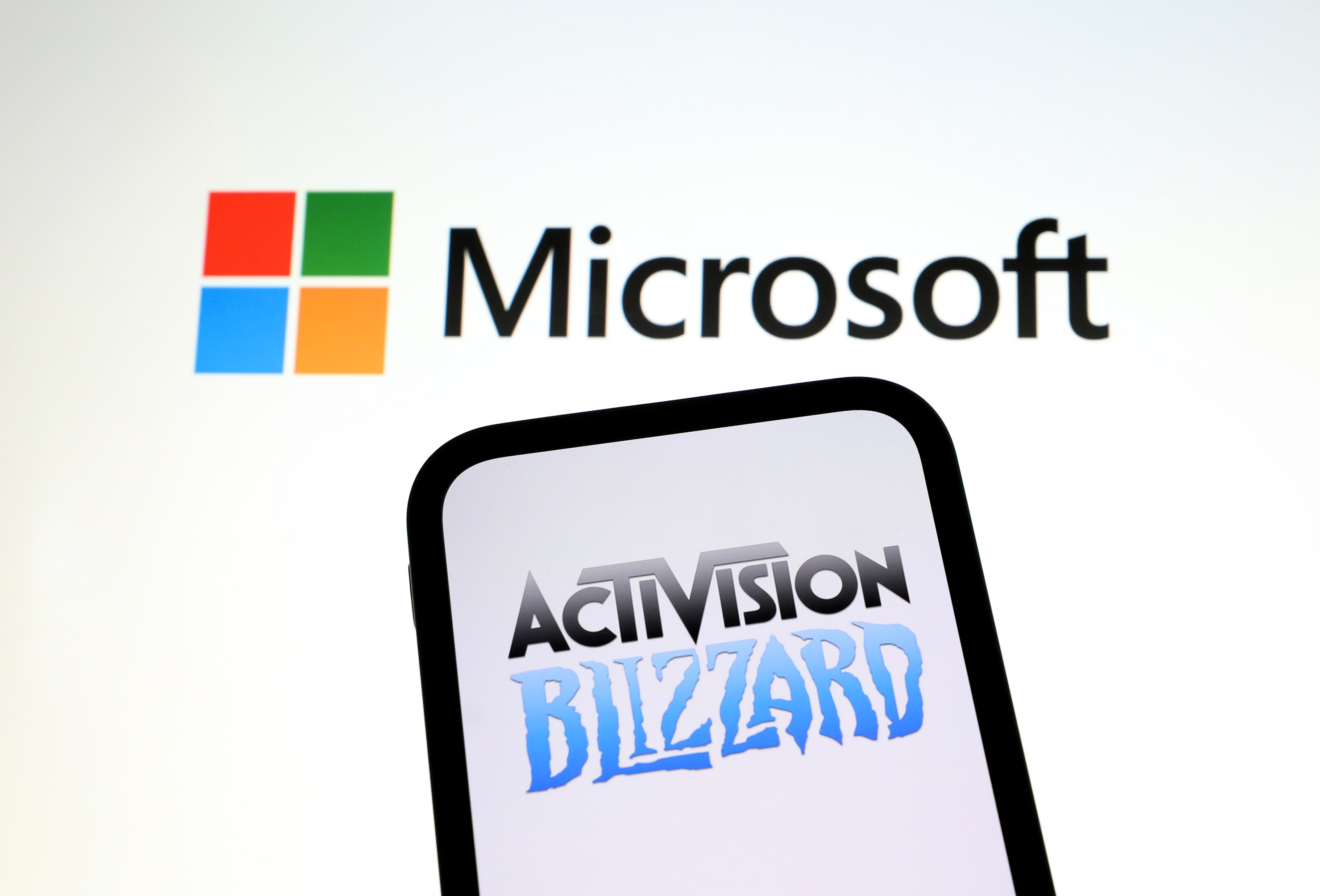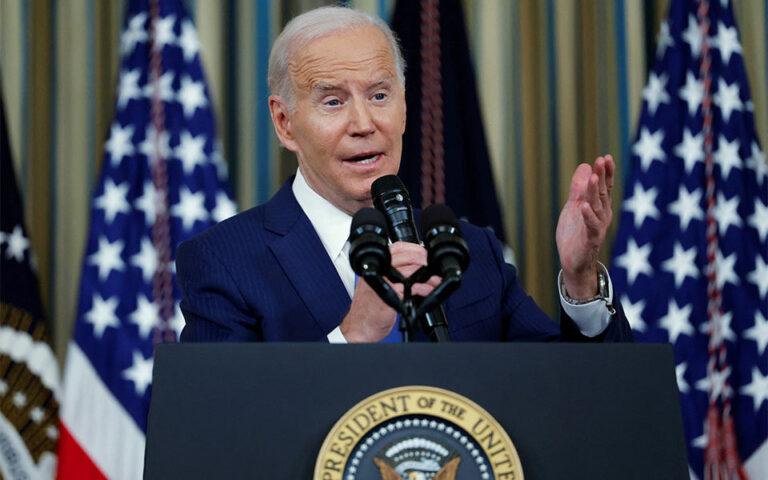FTC Challenges Microsoft's Activision Acquisition: The Future Of Gaming

Table of Contents
The FTC's Case Against the Merger
The FTC's primary concern centers around the potential for reduced competition and the creation of a monopolistic environment within the gaming industry. Their arguments hinge on several key points:
Antitrust Concerns
The FTC argues that Microsoft's acquisition of Activision Blizzard would significantly reduce competition, potentially harming consumers and stifling innovation. Specific concerns include:
- Microsoft's dominance in gaming consoles and potential stifling of competition from Sony PlayStation: Microsoft's Xbox already competes with Sony's PlayStation, and the acquisition of Activision Blizzard's vast portfolio would give Microsoft a significant competitive advantage, potentially harming PlayStation's market share and limiting consumer choice.
- Exclusive access to key franchises like Call of Duty and their impact on other platforms: The FTC fears that Microsoft could make titles like Call of Duty exclusive to Xbox, limiting availability on competing platforms like PlayStation and potentially harming those platforms' user bases. This would severely impact the competitive landscape.
- Impact on game developers and publishers: The merger could negatively affect smaller game developers and publishers by limiting their access to distribution channels and potentially reducing their bargaining power.
- Potential for increased game prices: By reducing competition, the merger could lead to higher prices for games and related services for consumers.
Evidence Presented by the FTC
The FTC has presented a range of evidence to support its claims, including detailed market share data showing Microsoft's increasing dominance in the gaming sector, internal Microsoft documents outlining strategies to potentially exclude competitors, and expert testimony from economists and industry analysts who highlight the potential negative consequences of the acquisition.
Microsoft's Response and Defense
Microsoft has countered the FTC's arguments, claiming the acquisition would benefit consumers through increased innovation and wider access to games. They have pledged to continue releasing Call of Duty on PlayStation and offered various concessions to address the FTC’s concerns, including long-term licensing agreements to ensure the game remains available on other platforms. Microsoft highlights its commitment to fair competition and the potential benefits of combining Activision Blizzard's creative talent with its existing technology.
Impact on the Gaming Industry
The outcome of this legal battle will have profound consequences across the gaming industry:
Effect on Consumers
Consumers could experience several potential effects, including:
- Price changes: Game prices might rise if competition is lessened.
- Access to games: Exclusivity deals could restrict access to popular titles on certain platforms.
- Platform exclusivity: Gamers might be forced to switch platforms to access favorite games if titles become exclusive to Xbox.
Influence on Game Developers
Independent game developers and studios could face challenges if the acquisition leads to a more centralized market with reduced opportunities for distribution and fair competition. Smaller studios may find it harder to compete with the resources of a merged Microsoft-Activision Blizzard entity.
Changes in the Competitive Landscape
The acquisition's success or failure will significantly alter the gaming industry's power dynamics. A successful merger would solidify Microsoft's position as a gaming giant, potentially reshaping the competitive landscape and influencing future mergers and acquisitions in the sector. Failure could embolden regulators to scrutinize similar deals more rigorously.
Global Regulatory Scrutiny
The FTC's challenge isn't isolated; the acquisition is facing scrutiny globally:
International Antitrust Reviews
Regulatory bodies in the European Union, the United Kingdom, and other countries are conducting their own independent antitrust reviews. These reviews could lead to varying outcomes and potentially impact the final decision regarding the acquisition. A negative ruling in any major market could be enough to derail the entire merger.
The Precedent Set by This Case
The Microsoft-Activision Blizzard case will set a crucial precedent for future mergers and acquisitions in the gaming industry and other tech sectors. The outcome will greatly influence how regulators approach similar deals involving major players and their market dominance. The legal arguments and rulings will be carefully studied by other companies considering similar acquisitions.
Conclusion
The FTC's challenge to Microsoft's acquisition of Activision Blizzard represents a pivotal moment for the gaming industry. The arguments regarding antitrust concerns, potential market dominance, and the future of gaming competition are significant. The outcome will not only shape the future of this specific merger but also serve as a benchmark for future regulatory decisions in the tech sector. The potential outcomes range from a complete blocking of the acquisition to conditional approval with significant concessions from Microsoft. The long-term implications for gamers, developers, and the competitive landscape remain uncertain. The FTC's challenge to Microsoft's Activision acquisition is a landmark case with far-reaching consequences for gamers worldwide. Stay tuned for updates and share your thoughts on the future of gaming after this critical decision!

Featured Posts
-
 El Impacto De Victor Fernandez Presente Y Legado
May 29, 2025
El Impacto De Victor Fernandez Presente Y Legado
May 29, 2025 -
 Flohmarkt Feeling Kunst Und Vintage Erobern Das Coty Gelaende In Koeln
May 29, 2025
Flohmarkt Feeling Kunst Und Vintage Erobern Das Coty Gelaende In Koeln
May 29, 2025 -
 Venloer Strasse In Koeln Ehrenfeld Bleibt Sie Einbahnstrasse
May 29, 2025
Venloer Strasse In Koeln Ehrenfeld Bleibt Sie Einbahnstrasse
May 29, 2025 -
 The Trump Coin Short That Earned A White House Dinner Invitation
May 29, 2025
The Trump Coin Short That Earned A White House Dinner Invitation
May 29, 2025 -
 O Tramp Eyxetai Ston Mpainten Perastika I Katastasi Stin Ameriki
May 29, 2025
O Tramp Eyxetai Ston Mpainten Perastika I Katastasi Stin Ameriki
May 29, 2025
Latest Posts
-
 Receta Facil De Lasana De Calabacin Paso A Paso Pablo Ojeda Mas Vale Tarde
May 31, 2025
Receta Facil De Lasana De Calabacin Paso A Paso Pablo Ojeda Mas Vale Tarde
May 31, 2025 -
 La Mejor Receta De Lasana De Calabacin Segun Pablo Ojeda Mas Vale Tarde
May 31, 2025
La Mejor Receta De Lasana De Calabacin Segun Pablo Ojeda Mas Vale Tarde
May 31, 2025 -
 Major Search Operation For Missing Child In River Thames
May 31, 2025
Major Search Operation For Missing Child In River Thames
May 31, 2025 -
 Couts De La Foire Au Jambon 2025 Une Situation Financiere Preoccupante A Bayonne
May 31, 2025
Couts De La Foire Au Jambon 2025 Une Situation Financiere Preoccupante A Bayonne
May 31, 2025 -
 Receta De Lasana De Calabacin De Pablo Ojeda Facil Y Deliciosa Mas Vale Tarde
May 31, 2025
Receta De Lasana De Calabacin De Pablo Ojeda Facil Y Deliciosa Mas Vale Tarde
May 31, 2025
